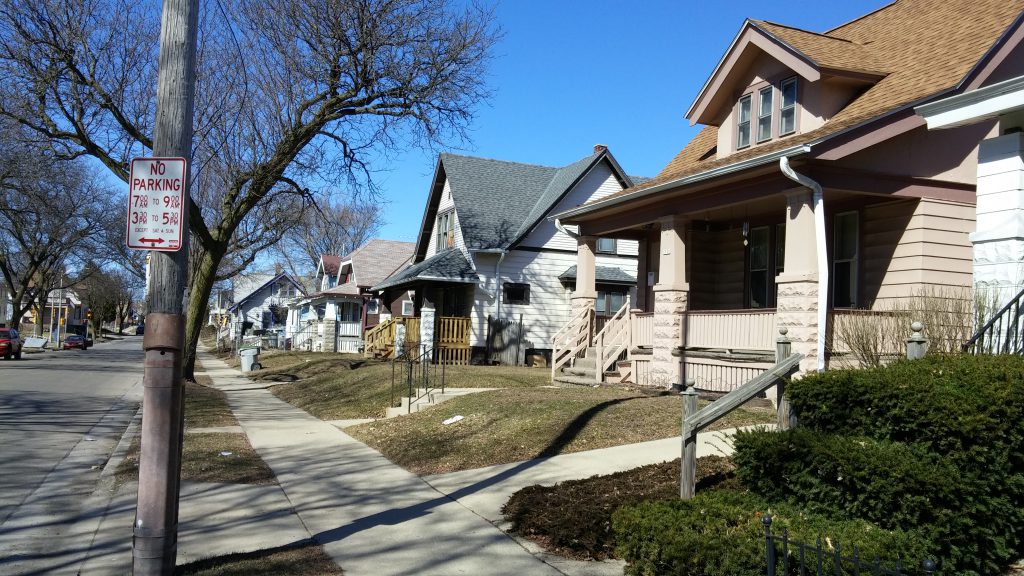State Credits Lower Your Tax Bill
Reducing the pain of that end-of-year property tax bill you received.
That property tax bill in your December mail – yes, the letter that was the opposite of all those holiday greetings – could have been much higher.
Sure, you focused on that bill’s bottom line: How much do I owe in taxes on my home? How much did it go up in a year?
What you probably didn’t notice was how much tax credits – which began in 1962 and have been increased by governors and legislators of both parties ever since – lowered your bill.
Estimates from the Legislative Fiscal Bureau and other sources say schools and other local governments levied $11.58 billion in property taxes – assessed in fall 2019 and payable this year – before tax credits are subtracted.
That means, through tax credits, state government will pay almost 12 percent of all property taxes this year. If there were no tax credits, that tax bill on your home would have been much, much higher.
After eight years of tight controls on the tax bill on that mythical median-valued Wisconsin home, many tax bills spiked up in December because property taxes for schools increased by 4.5 percent – the biggest jump in a decade, according to the Wisconsin Policy Forum.
The three tax credits that lowered property taxes on your home, described in the fine print of your tax bill, are:
*School Levy Tax Credit, which uses state tax dollars to offset local property taxes for schools. The credit was $469.3 million through 2005, but ballooned to $940 million last year. The credit equaled about 19 percent of all property taxes levied for schools last year, according to the Fiscal Bureau.
*First Dollar Tax Credit, started in 2008 to offset property taxes on homes assessed at more than $7,000. The First Dollar credit averaged about $66 per home last year and cost state government about $150 million.
*Lottery and Gaming Tax Credit, which varies by year depending on lottery profits and how elected officials budget lottery administration costs and prizes. LFB reported that the lottery credit averaged $160 per home last year and cost state government about $236 million.
“It’s important Wisconsinites know the basics about the size of these tax credits and what they do,” Stein said. “Property tax credits are now the third biggest state general-fund expenditure – more than the state tax dollars going into either the UW-System or into state prisons.”
“That wasn’t true several decades ago,” he added. “I don’t think most people realize that.”
Fiscal Bureau reports document that trend: In the 2009-19 decade, state tax credits that offset property taxes went up by 41 percent – from $938 million to $1.32 billion.
Todd Berry, who closely followed state and local spending for decades before he retired as president of the Wisconsin Taxpayers Alliance, said he knew why tax credits have ballooned: “The reason credits became more popular in the last 40 years is that a number of legislators and governors came to feel that state aid payments to local units of government were not achieving the goal of property tax relief.”
Agreeing with Stein, Berry said, “Few folks pay close attention to the details of their bill normally.”
Berry doubted that elected Capitol officials would ever cut tax credits, even if there was another recession: “Based on last decade, I suspect they would cut just about anything before credits. Certainly shared revenue and the UW System are two examples of appropriations that suffered over the years when restraint was needed.”
The politics behind this is simple, said Berry:
“The property tax is the bloody shirt of Wisconsin politics – the club with which to hammer partisan opponents for over a century. State politicians do NOT want to be blamed for property tax increases.”
Steven Walters is a senior producer for the nonprofit public affairs channel WisconsinEye. Contact him at stevenscotwalters@gmail.com
If you think stories like this are important, become a member of Urban Milwaukee and help support real, independent journalism. Plus you get some cool added benefits.
The State of Politics
-
A Wisconsin Political Trivia Quiz
 Dec 15th, 2025 by Steven Walters
Dec 15th, 2025 by Steven Walters
-
The Fight Over Wisconsin’s House Districts
 Dec 8th, 2025 by Steven Walters
Dec 8th, 2025 by Steven Walters
-
The Battle Over On-Line Betting
 Nov 24th, 2025 by Steven Walters
Nov 24th, 2025 by Steven Walters























It’s a zero sum game. Local governments and school districts getting pinched turn to their only options, the levy or a wheel tax or sales tax to make up the loss on the credits.